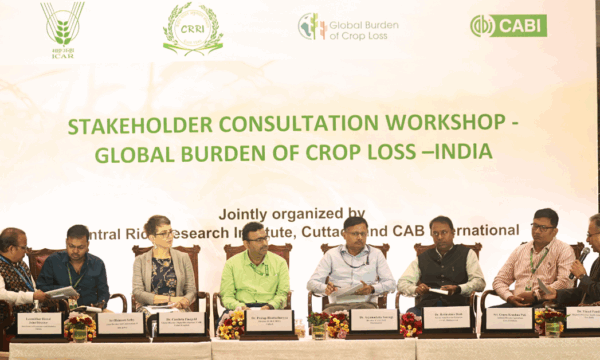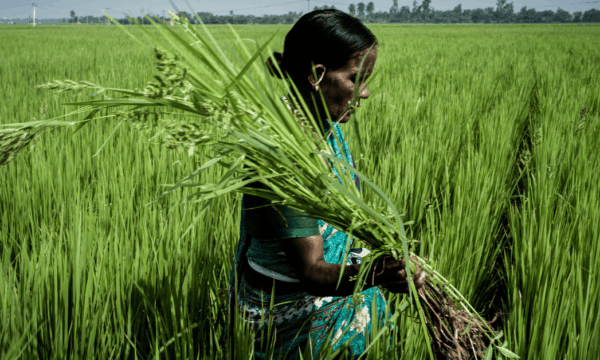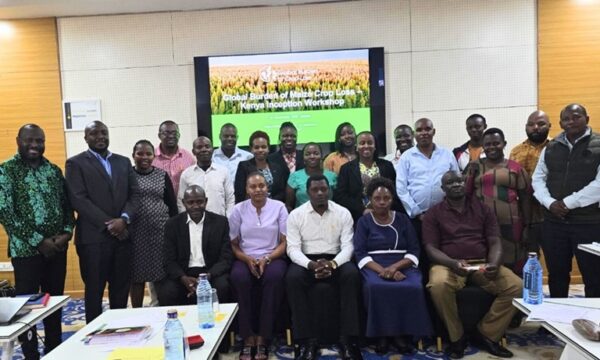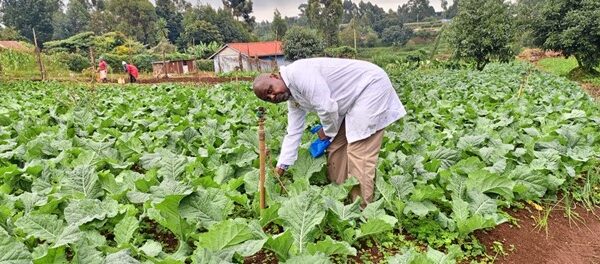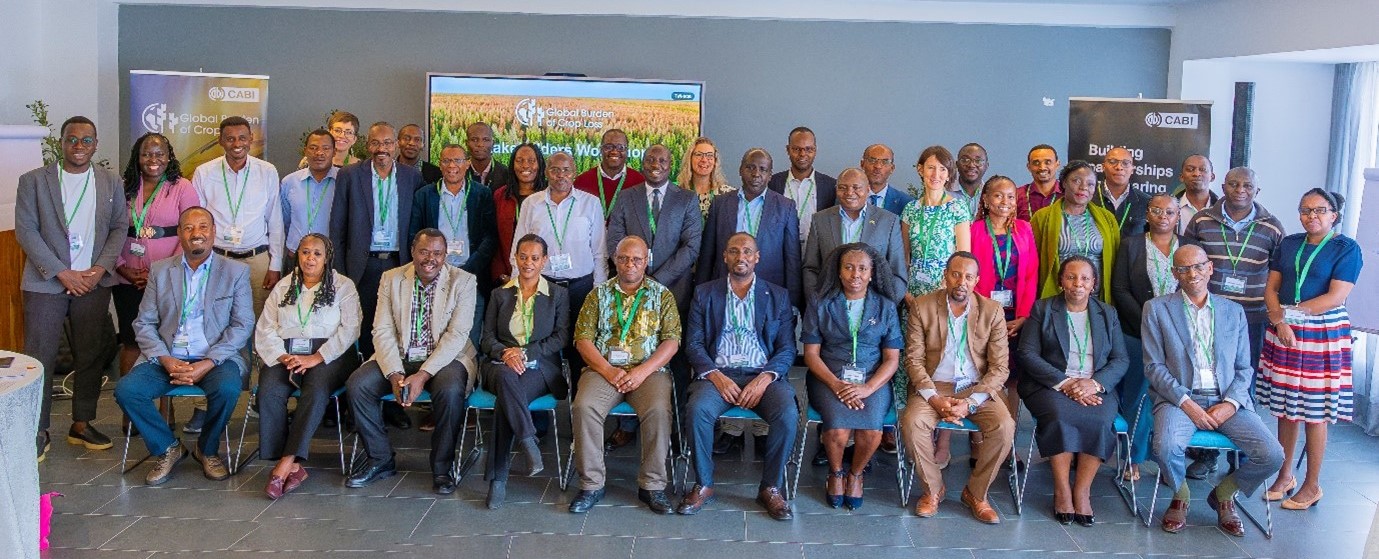
In Kenya and Ethiopia, every kilogram of maize or wheat lost adds up to millions in lost income for farmers, widespread nutrition gaps for families, and significant missed opportunities for national economy and food security. Yet across both countries every year, significant volumes of these vital crops are lost to pests, diseases, and postharvest challenges long before they reach the market or table.
These losses are particularly concerning because wheat is a strategic priority in Ethiopia, where the government aims to stop import dependency and achieve food self-sufficiency, with already a commendable achievement in this regard. In Kenya, maize is not only a widely grown crop but also a dietary staple and a cornerstone of national food security.
A response to a shared challenge
Senior experts and officials from national agricultural and plant health system and other key stakeholders from Kenya and Ethiopia gathered in Nairobi, Kenya for a regional workshop organized by the Global Burden of Crop Loss (GBCL) initiative. The workshop provided a platform to explore practical ways to assess and reduce crop losses, with a focus on using data and evidence to guide national policies and interventions.
Led by CABI and supported by UK International Development and Gates Foundation, GBCL aims to generate trusted, actionable estimates of crop losses. Inspired by the Global Burden of Disease model used in human health, GBCL will bring the same analytical rigour to agriculture to help countries make informed policy, funding, and intervention decisions.
Data of the burden of losing key crops such as maize, wheat, rice, cassava, banana, and cowpea will help governments, researchers, and partners make informed decisions and implement targeted solutions to boost yields, improve farmer incomes, and strengthen resilience to climate change.
Crop loss impacts food security, yet remains poorly understood
“Crop loss impacts food security, livelihoods, and economic resilience. Yet without reliable data, it is difficult to respond effectively,” explained Dr Negussie Efa Gurmessa, CABI’s Scientist and Country Programmes Manager.
Ethiopia and Kenya have been selected as part of GBCL’s initial focus countries. “We are working with stakeholders to test the potential of GBCL data for in-country decision-making and also conducting in-depth case studies on wheat in Ethiopia and maize in Kenya,” Dr Negussie said.
He added: “At the workshop, stakeholders helped identify key priorities and shared ideas on how our research outputs can best support national decisions. They also highlighted datasets that could feed into our modelling activities, ensuring that GBCL outputs are both relevant and actionable.”
Reinforcing this collaborative approach, Dr Daniel Karanja, CABI’s Deputy Director, Research and Innovation, said: “CABI is committed to designing programmes that address the priority needs of our 48 Member Countries, including Ethiopia and Kenya. Tackling crop loss is a shared priority, and GBCL’s evidence-based data will help drive national decisions on food security.”
Data, dialogue, and collaboration
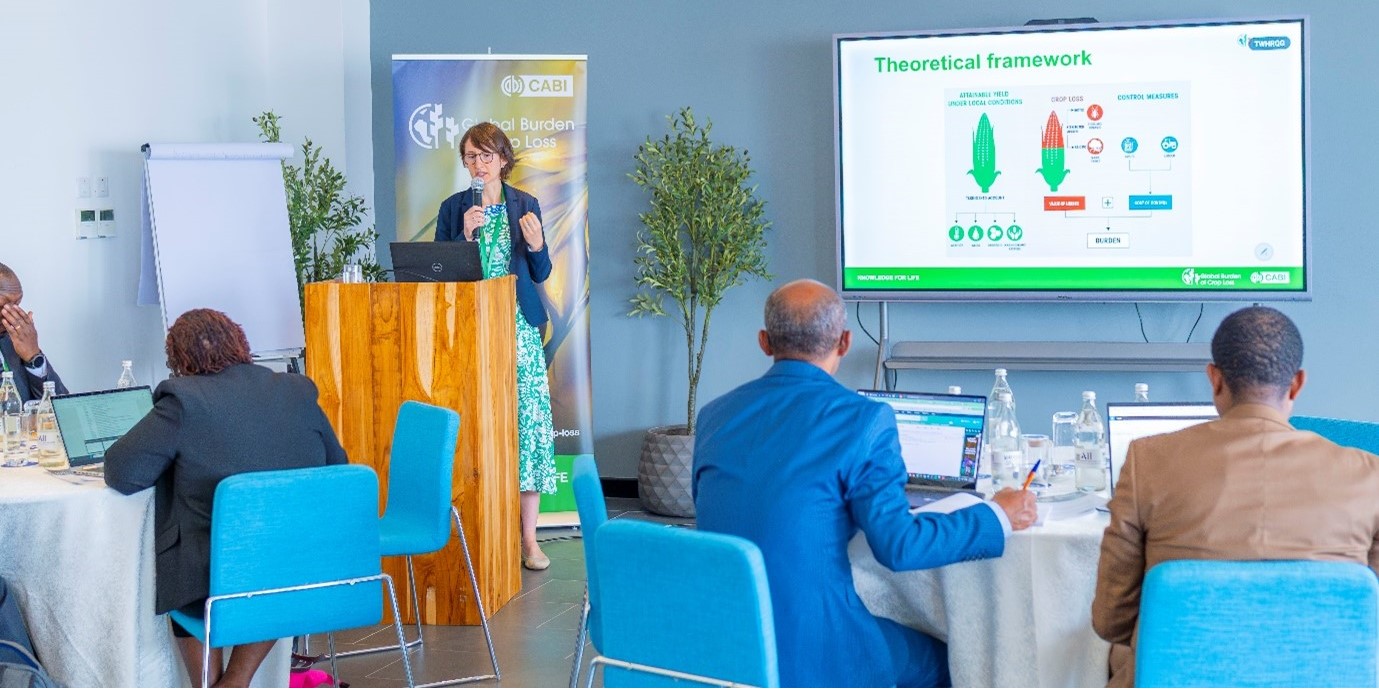
Workshop participants engaged in in-depth discussions to align GBCL with national priorities and decision-making needs. They also assessed available national data sources and explored collaboration opportunities to strengthen national responses to crop loss.
A key highlight was a presentation by Dr Anna Szyniszewska, CABI’s Technical Lead for GBCL, who outlined the project’s modelling approach and shared preliminary maize modelling results. Her insights sparked lively dialogue on how GBCL can inform practical interventions.
In another session, Dr Negussie and Henry Mibei, Manager, Digital Development, Africa, shared a stakeholder map for Ethiopia and Kenya, highlighting key actors and the types of data they hold. Mr Mibei also shared how GBCL intends to manage the data accessed for this initiative within the framework of FAIR principles (that aim to make datasets findable, accessible, interoperable and reusable) and responsible data practices. Participants then contributed additional stakeholders, outlined their roles in GBCL, and noted relevant data sources that could be shared with GBCL.
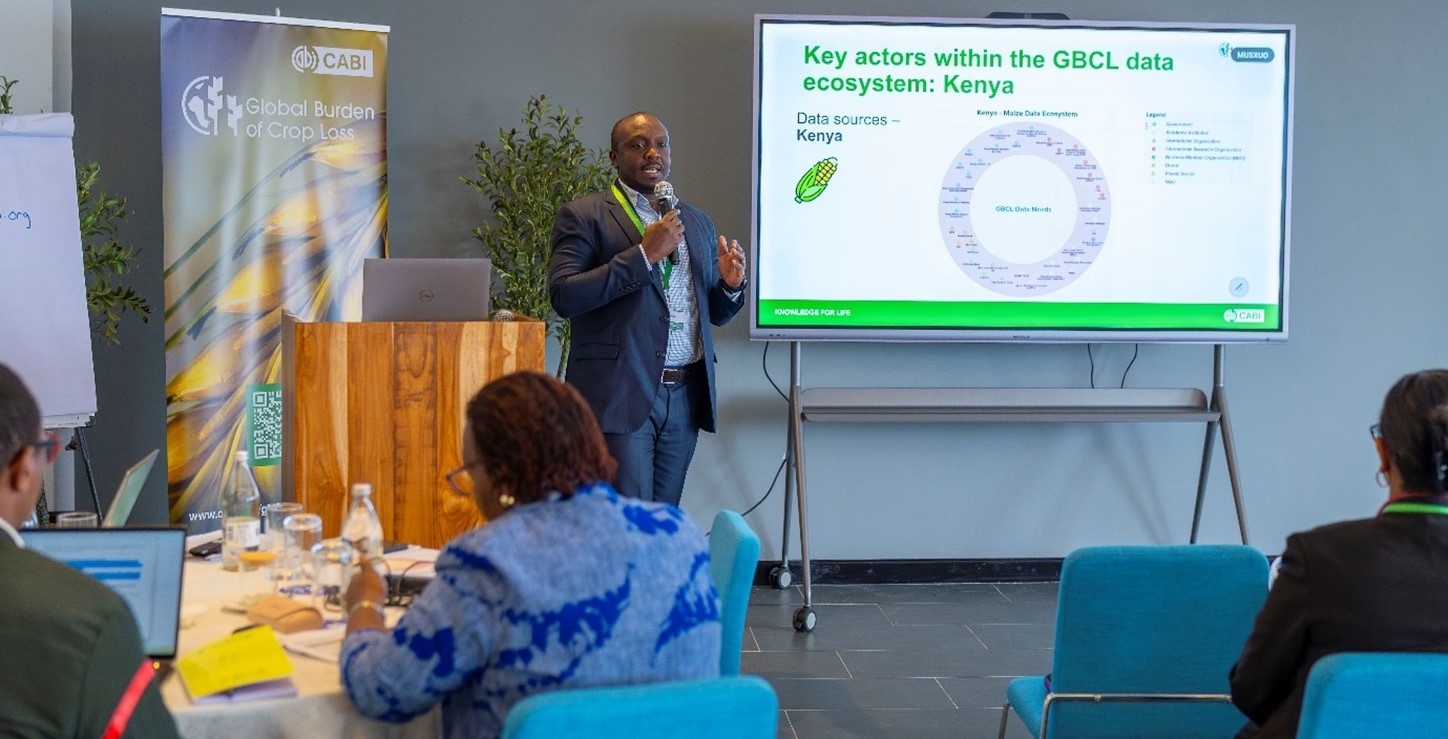
The power of reliable data
Stakeholders expressed support for the initiative and highlighted its potential to fill a critical data gap.
Mr Paul Omuse Obusuru, Head of Food Crops Unit, Kenya’s Ministry of Agriculture and Livestock Development (MoALD) emphasized the timeliness of GBCL: “The initiative is timely and addresses a critical issue, given that food is a basic human right. In 2024, Kenya developed the Postharvest Management Strategy for Food Loss and Waste Reduction. We recognize that food loss starts at the production level. This initiative will provide data to address the challenges.”
Dr Fekadu Gurmu, Director of Crops Research at Ethiopia’s Institute of Agricultural Research (EIAR), echoed the value of reliable data: “Inaccurate or untimely data leads to poor decisions, which can be devastating. Reliable, accurate, and timely data is crucial for timely interventions that curb crop loss.”
He also stressed the value of collaboration:
“Engaging stakeholders throughout the process is vital for success. The stakeholder mapping exercise was an important step in identifying key actors and defining their roles in the GBCL initiative. This initiative will go a long way in fostering our collaboration and partnership even beyond the current phase of GBCL project.”
Looking ahead
GBCL is rapidly advancing, with a clear roadmap to deliver high-impact results. In 2025, the initiative will complete burden estimates for maize and wheat, conduct gender-focused studies, and launch a prototype dashboard.
Building on this progress, 2026 will see the release of burden estimates for rice, cassava, and banana, along with national case studies for Kenya and Ethiopia.
“By 2027, we aim to finalize burden estimates for cowpea and complete a case study in India. Throughout, we remain committed to engaging stakeholders to ensure our outputs are relevant, actionable, and aligned with national priorities,” said Cambria Finegold, CABI’s Global Director, Digital Development.
Additional information
Main image: National agricultural and plant health officials from Kenya and Ethiopia gathered in Nairobi, Kenya for a regional workshop organized by the Global Burden of Crop Loss (GBCL) initiative.
Video
Global Burden of Crop Loss: Stakeholder workshop, Kenya and Ethiopia – 2025 (please note, cookies must be enabled for the video to load)
Relevant news and stories:
The Global Burden of Crop Loss: Evidence-based systems to tackle food security
Equipping decision-makers with evidence to tackle global crop loss
Related News & Blogs
Highlights from 2025: Most read blogs
As 2025 draws to a close, we’ve reviewed the numbers to highlight this year’s achievements on the CABI Blog, from pest risk reduction and innovative agricultural initiatives to addressing crop loss and earning global recognition. Revisit this year’s to…
16 December 2025


